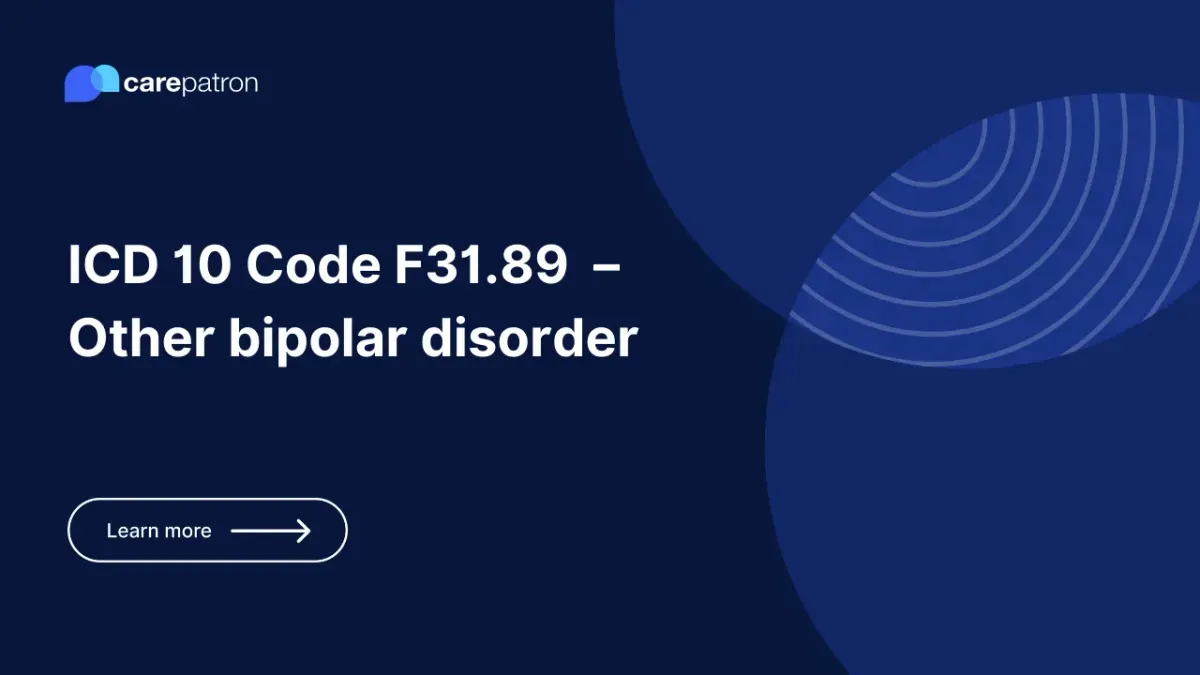
F31.89 – Other bipolar disorder
Dive into F31.89 - Other bipolar disorder. Understand its clinical implications, billability, related ICD-10-CM codes, synonyms, and more.
Use Code
Commonly asked questions
ICD-10 code F31.81 is for bipolar II disorder.
F30.1 is a category for a manic episode without psychotic symptoms.
Yes, people with bipolar disorder experience depressive episodes. These episodes are marked by an intensely sad mood or a loss of the ability to feel joy or pleasure. Bipolar disorder involves alternating mood episodes, including manic or hypomanic periods and depressive episodes, with some periods of neutral mood in between.
EHR and practice management software
Get started for free
*No credit card required
Free
$0/usd
Unlimited clients
Telehealth
1GB of storage
Client portal text
Automated billing and online payments
